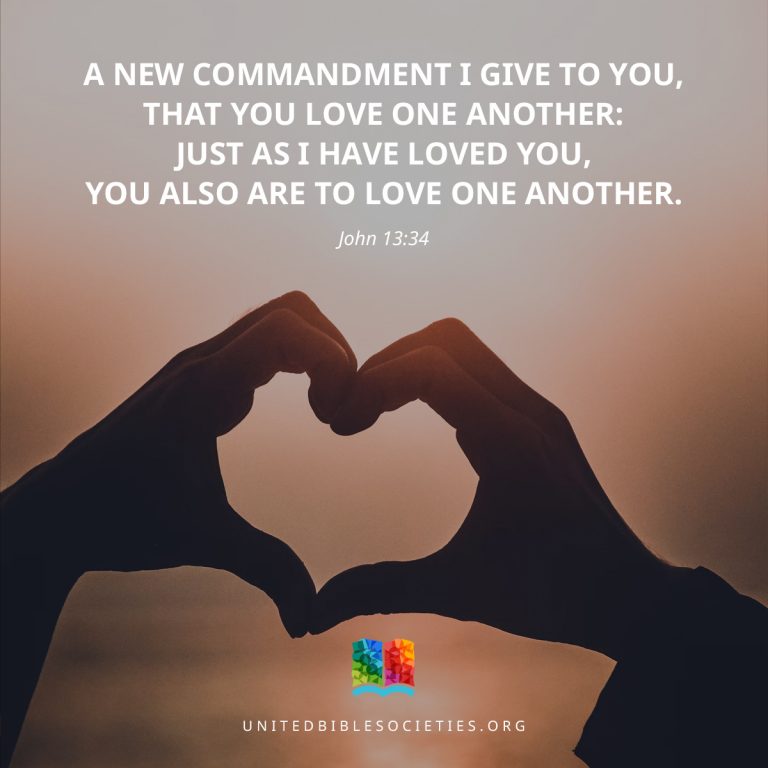aza 2
ŋizaw eḏi zi iɽi-na lir luway na lir lurṯu tɔk
1 lieŋgeri linyi, kaka miḏa ŋa gwu ṯəmna ṯeḏi Kweleny kweri kweni Yecu Kwruztu, kwir Kweleny kweḏi ŋiniṯ, eṯi biɽḏi lizi-na ki yey-na yalu. 2 ma kwor kwere ila ki liduŋw-na lalu kwukinna yaṯima yir ḏahab na yireṯi yir gaali gaali, na muŋw ila tɔk kwete kwir kwuway kwukinna yireṯi yiruŋwa, 3 eṯere ketize ŋgwa yəni ciɽŋel mac kwukinna yireṯi yizaw, na eḏeca ŋwu, min faḏlak nanalu kunuŋw; mindaŋ ma eca ŋgwa kwir kwuway ŋwu: irli kinanɔŋw, ya nanalu ŋwuɽele-na ŋwinyi. 4 a liti limɔ undeci lizi ezir-na ter ter ki ŋumaṯ-na ŋalu manya eḏi zi ṯecici ŋiɽaŋal ŋi ŋiti ŋofḏana mac? 5 niŋnarṯi, lieŋgeri linyi lamɽanyji. liti limɔ zi Allah ece-na kla lir luway ki ṯurmun-na manya eḏorɔ lurṯu ṯəmna ṯi, na eḏafi ŋoru ŋeḏi ŋeleny ŋimɔŋw zi ŋi kitaḏa kla leṯamɽi ŋunduŋwu a? 6 lakin ŋa, na ruze luŋw ŋgwa kwir kwuway, lurṯu liti liri manya leṯiŋazi urreda-na? leṯiŋazi mumultaḏa mahakma nana kinḏaɽ kinḏaɽ tɔk manya? 7 lurṯu liti liri manya leṯiŋazi ruzici yiriny luŋw yalu yeni yizaw?
8 ma inyici kuruu nana keḏi Kweleny kuluḏina, karuŋw, eṯi zi amɽi liḏaḏu kaka eṯi gwu amɽi rɔgwɽɔ rɔŋwa, ŋimɔ zi ṯa erri ŋizaw. 9 lakin ma ere biɽḏi lizi-na mac ki yey-na yalu, ŋimɔ zi ta erri ŋiki, mindaŋ a kuruu ruzi ŋaŋwuzi kaṯi. 10 ma kwizi kwere miḏa kuruu tatap mindaŋ muŋw aki kete pir, nuŋw eni kwumɔ kii kuruu-na tatap. 11 kaka ŋgwa kwaruŋw: eṯere orɔ kwijin mac, nuŋw aruŋw tɔk: eṯere kete ḏimya mac. ma ere orɔ kwijin mac, lakin ma kete ḏimya ta, a kuruu ruzi ŋaŋwu kaṯi. 12 eṯi zi andaci tɔk, eṯi zi erri tɔk kaka kla tatap linḏir zi eḏi zi ṯecici kuruu gi keḏi hurriya. 13 mahakma kwiti kweḏi ŋimɽya-na mac nani gwu kwere kwiti kwumɔ zi eḏici ŋimɽya ŋere tɔk mac, na eṯi ŋimɽi ṯamḏu hukma la.
ŋeḏi ṯəmna, na ŋeḏi ŋɔḏɽor
14 lieŋgeri linyi, fayḏa kwende kwere nani gwu kwizi kwere kwaruŋw, nyi kweḏi ṯəmna, muŋw zi ere erri ŋeni ŋizaw mac? ṯəmna kḏa ṯeḏi ŋuma eḏi kileḏi ŋunduŋwu a? 15 ma aŋgalu kwere kwir kwor ya kwir kwaw ere eḏi yireṯ-na mac, ya eḏneya weḏi nyamin nyamin mac, 16 mezi kwete kwalu ecaŋw: ca, inḏir lizaw, fuḏir nana, a be tɔk; lakin mezi ere meci mac, e ta fayḏa kweḏaḏa kwir ŋgwu? 17 ŋwu ṯaŋwu, ṯəmna ṯeni ṯayyu, muŋw ere eḏi ŋɔḏɽor-na ŋere mac.
18 lakin muŋw ari kwere ŋwu: ŋa kweḏi ṯəmna, nenyeḏi nyi, ŋɔḏɽor. baŋicanyi ṯi ṯəmna ṯɔŋwa ṯiira ŋɔḏɽor-na ŋɔŋa, na nyi ta, a ŋa ma baŋaci ṯəmna tinyi ŋɔḏɽor ŋi ŋinyi. 19 ŋeṯi zi emni eḏaruŋw, Allah wiri wutuput. ŋimɔ zi ṯa erri ŋizaw; lakin na rigɽim riki tɔk, eṯir ŋi emni, mindaŋ eṯir ŋi unḏuḏi. 20 a kwunaŋna nyi eḏi baŋaci ŋaŋwu, kweni kwiḏyaki, eḏaruŋw, təmna dak ṯiira ŋɔḏɽor-na titi ṯeḏi fayḏa mac? 21 na ŋiɽaŋal ŋeḏi ibrahiim kwir ṯernyeri ṯeri. na Allah ere ruzi ŋunduŋwu kwuzuɽu ṯugwor-na ŋɔḏɽor ŋi manya, ki lomur limɔŋw li ṯiŋaci ŋunduŋw toru lu tuŋwun ki ŋweḏgwun la? 22 izarṯi, ŋɔḏɽor ŋuŋun ŋir ṯa ŋimɔ ruzi ṯəmna rerem, na ŋɔḏɽor ŋuŋun rataci ṯəmna. 23 na ŋa ŋuluḏina ŋimɔ ṯa orɔ ŋwu dap, ŋaruŋw: ibrahiim eḏici Allah təmna, ner ta ruzi təmna tuŋwun kaka ṯofḏana tuŋwun; ner eca ŋunduŋwu kwumat kweḏi Allah. 24 ŋimɔ zi eze rac ŋeḏi kwor kwumɔ zuɽuni ki yey-na yeḏi Allah, ŋɔḏɽor ŋi ŋuŋun, nuŋw ere zuɽuni təmna ṯi dak mac. 25 na ŋiɽaŋal ŋi kaka taŋwu ta, ner ere ruzi rahab kwir kwijin kwuzuɽu-na ŋɔḏɽor ŋi ŋuŋun tɔk manya, enjaŋw gwu loru luzarzi, mindaŋ nuŋw zi kete kitay, tay ṯi tir ter a? 26 aŋna witi wari wəŋ mac weni wayyu; ner ṯa orɔ ŋwu tɔk, ṯəmna ṯiira ŋɔḏɽor ṯeni ṯayyu tɔk.
Warning against Having Favorites
1 My friends, if you have faith in our glorious Lord Jesus Christ, you won't treat some people better than others. 2 Suppose a rich person wearing fancy clothes and a gold ring comes to one of your meetings. And suppose a poor person dressed in worn-out clothes also comes. 3 You must not give the best seat to the one in fancy clothes and tell the one who is poor to stand at the side or sit on the floor. 4 This is the same as saying that some people are better than others, and you would be acting like a crooked judge.
5 My dear friends, pay attention. God has given a lot of faith to the poor people in this world. God has also promised them a share in his kingdom that he will give to everyone who loves him. 6 You mistreat the poor. But isn't it the rich who boss you around and drag you off to court? 7 Aren't they the ones who make fun of your Lord?
8 You will do all right, if you obey the most important law in the Scriptures. It is the law that commands us to love others as much as we love ourselves. 9 But if you treat some people better than others, you have done wrong, and the Scriptures teach that you have sinned.
10 If you obey every law except one, you are still guilty of breaking them all. 11 The same God who told us to be faithful in marriage also told us not to murder. So even if you are faithful in marriage, but murder someone, you still have broken God's Law.
12 Speak and act like people who will be judged by the law that sets us free. 13 Do this, because on the day of judgment there will be no pity for those who have not had pity on others. But even in judgment, God is merciful!
Faith and Works
14 My friends, what good is it to say you have faith, when you don't do anything to show you really do have faith? Can this kind of faith save you? 15 If you know someone who doesn't have any clothes or food, 16 you shouldn't just say, “I hope all goes well for you. I hope you will be warm and have plenty to eat.” What good is it to say this, unless you do something to help? 17 Faith that doesn't lead us to do good deeds is all alone and dead!
18 Suppose someone disagrees and says, “It is possible to have faith without doing kind deeds.”
I would answer, “Prove that you have faith without doing kind deeds, and I will prove that I have faith by doing them.” 19 You surely believe there is only one God. That's fine. Even demons believe this, and it makes them shake with fear.
20 Does some stupid person want proof that faith without deeds is useless? 21 Well, our ancestor Abraham pleased God by putting his son Isaac on the altar to sacrifice him. 22 Now you see how Abraham's faith and deeds worked together. He proved his faith was real by what he did. 23 This is what the Scriptures mean by saying, “Abraham had faith in God, and God accepted him.” That's how Abraham became God's friend.
24 You can now see that we please God by what we do and not only by what we believe. 25 For example, Rahab had been a prostitute. But she pleased God when she welcomed the spies and sent them home by another way.
26 Anyone who doesn't breathe is dead, and faith that doesn't do anything is just as dead!



